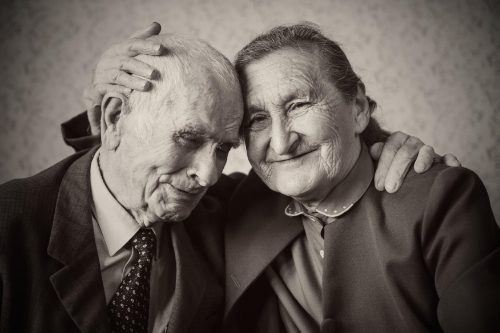
By Russell Shaw
Is the Catholic Church’s teaching on marriage, including indissolubility, an ideal or a norm? Although the question may sound abstract, even esoteric, it has urgent, immediate practical implications. To say one admires the Church’s teaching as an ideal is, intentionally or not, to undermine that teaching in the act of admiring it.
Here is the key to understanding a struggle that surfaced at last October’s Synod of Bishops on marriage and is likely to continue at the synod next fall.
Most obviously, it’s an argument about the correct approach to take to people in “irregular unions”—cohabiting couples, same-sex couples, and divorced and remarried Catholics whose first marriages haven’t been annulled. In particular: should some of those latter be given communion or should they not?
This is where the question of norms and ideals becomes crucial. To see why, some definitions are necessary.
Start with the Church’s teaching on marriage. A marriage is a union of a man and a woman whose principal characteristics include permanence (indissolubility), faithfulness, and openness to children.
As for ideals, the first meaning my dictionary gives for the word as a noun is “a conception of something in its absolute perfection.”
And norms? Here’s the dictionary again: “a standard, model, or pattern considered to be as typical for a specific group.”
So what’s wrong with calling marriage as the Church understands it an ideal? Look at the definition again. An ideal is the “absolute perfection” of something. And how often do people reach absolute perfection, in marriage or anything else? Human beings always fall short of ideals. So, when it’s a question of marriage, why not just welcome back people who’ve married without annulments after their first marriages failed, and offer communion to those who want it?
The notion that the Church’s teaching on marriage is an ideal is apparently widespread. Lately, without trying hard, I found this usage in articles by two cardinals who were prominent at last fall’s synod. They’re scarcely the only ones who talk this way.
Describing moral doctrine as an ideal (or using some verbal equivalent: e.g., “vision”) isn’t limited to marriage. The teaching on contraception often receives the same treatment. Some teachers and pastoral personnel who say they accept the doctrine nevertheless find this a convenient way of excusing Catholics who practice birth control. “I don’t have a problem with the teaching,” they say. “I think it’s a beautiful ideal.”
By contrast, calling a moral teaching a norm means that there is a real obligation to observe it. There will be failures, perhaps repeated ones, but God is merciful and so is the Church. Forgiveness is always available to those who repent and try to live by the norm.
People who wish to lighten the burden of those whose marriages have collapsed no doubt mean well. Rethinking the criteria for annulments and speeding the process might help. But treating the indissolubility of marriage as a non-binding ideal is the wrong way to go.
Finally, though, is this teaching really a norm? When Jesus told his disciples marriage was indissoluble—no divorce—they replied that if that’s so, then getting married was “not expedient.” The nineteenth chapter of Matthew’s gospel records this exchange. There is no indication Jesus said, “Not to worry—it’s only an ideal.” What he did say was, “What God has joined together, let no man put asunder.” Was that just an ideal?
Words matter. Misusing them, even unintentionally, can do much harm. Here’s hoping the Synod of Bishops doesn’t make that mistake.
Russell Shaw is a freelance writer based in  Washington, D.C., and the author of twenty books, including American Church: The Remarkable Rise, Meteoric Fall, and Uncertain Future of Catholicism in America is available on Kindle. You can email him at [email protected].
Washington, D.C., and the author of twenty books, including American Church: The Remarkable Rise, Meteoric Fall, and Uncertain Future of Catholicism in America is available on Kindle. You can email him at [email protected].













